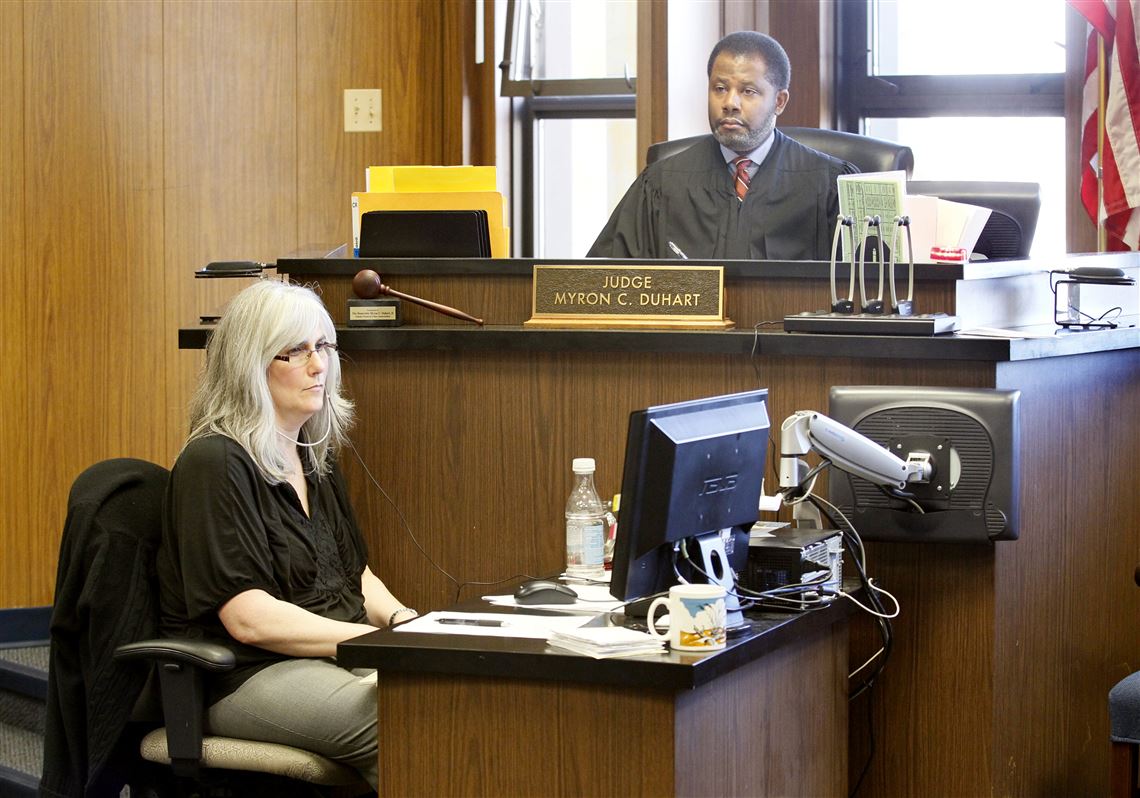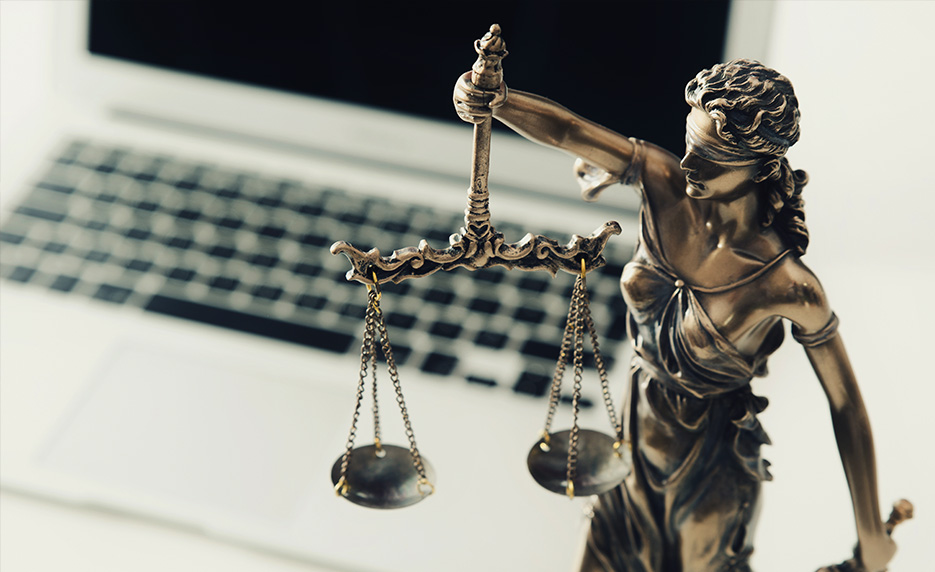Exactly How Court Reporting Works: A Step-by-Step Overview to the Lawful Process
Court reporting is a crucial element of the legal system. It entails an organized procedure that assures exact documents of proceedings. From prep work to the final shipment of records, each step is necessary. Recognizing just how court press reporters run offers understanding right into the integrity of lawful documents. The nuances of their work can profoundly influence legal outcomes, prompting questions concerning the technologies and approaches they use. What are the particular strategies that define this occupation?
The Duty of Court Reporters in the Legal System
Court reporters play an important duty in the lawful system by providing accurate and dependable transcripts of court proceedings. Their work assurances that every spoken word during trials, depositions, and hearings is documented, which is important for maintaining an official document of occasions. This transcription is basic for allures, as it permits greater courts to evaluate the process and determine if any type of mistakes were made during the test.
Furthermore, court press reporters assist in protecting the stability of the legal procedure by producing verbatim records that can be described by attorneys, judges, and other events entailed in an instance. They frequently make use of specific equipment and software application to capture discussion with precision. Past the court, their records can act as vital historic documents, using understanding into judicial procedures and the legal system's performance. Ultimately, stenotype reporter contribute greatly to transparency and responsibility in lawful matters.
Planning for a Court Reporting Session
Preparation is important for a successful court reporting session, as it ensures the accuracy and performance of the transcription process. Stenotype reporter start by assessing instance materials, including pleadings and witness checklists, to acquaint themselves with the terms and context. They likewise make specific that they have the necessary tools, such as steno machines, notebooks, and back-up gadgets, prepared for usage.
Prior to the session, communication with legal groups is essential. Press reporters usually clarify any type of certain requests relating to formatting or chosen terms. Furthermore, they might arrange to meet witnesses or attorneys to talk about the procedures and confirm the routine. Arriving very early to establish the equipment enables troubleshooting possible technical concerns. Generally, detailed preparation not only improves the press reporter's confidence but also adds considerably to generating a accurate and clear document of the legal procedures.

Catching the Record: Methods and Tools
Making use of sophisticated strategies and reliable tools, stenotype reporter meticulously catch the talked word throughout legal proceedings. They utilize stenography, an approach involving a specialized maker that enables them to kind several noises simultaneously, consequently transcribing dialogue in real time. This device, recognized as a steno keyboard, is furnished with secrets that stand for syllables and words, allowing swift and accurate input.
In addition to stenography, stenotype reporter may use audio recording tools as additional tools. These devices serve as backups, ensuring that no critical information is shed throughout process. Furthermore, some press reporters include software that improves their transcription effectiveness, using attributes such as voice acknowledgment and automated formatting.
Appropriate positioning and focus are vital; press reporters need to preserve focus on all speakers, capturing nuances and inflections that contribute to the document. With a combination of skill and modern technology, stenotype reporter copyright the stability of the lawful process by guaranteeing a extensive and accurate document of occasions.
Transcribing the Procedures
Recording the procedures needs stenotype reporter to convert talked discussion right into written message with outstanding accuracy and rate. This procedure generally occurs right away after the recording has been recorded, utilizing specialized software program that enables smooth transcription. Court reporters right here need to listen diligently to the sound, ensuring that every inflection, time out, and word is accurately stood for in the transcript.
They usually rely upon shorthand systems, personal transcription skills, and progressed technology to facilitate this task. The atmosphere in which they function can be often chaotic and fast-paced, as lawful procedures often entail multiple audio speakers and technical jargon. Court reporters have to also keep focus to catch nuances in tone and context that may be necessary for the legal record. visit this web-site Inevitably, the accuracy of the transcription is essential, as it works as an official file for future reference in legal procedures.
Modifying the records and examining
The procedure of evaluating and modifying the transcript is important for ensuring precision in court reporting. Court reporters often work together with attorneys to clarify any uncertainties and verify the accuracy of the videotaped declarations. This collaboration is vital for keeping the stability of the lawful record.
Value of Accuracy
Accuracy acts as the keystone of effective court reporting, as even minor mistakes can substantially modify the definition of legal process. The reviewing and modifying process is vital in ensuring that records mirror the talked word with integrity. Court reporters diligently confirm names, technological terms, and legal jargon to preserve accuracy. This attention to information helps prevent misconceptions that could influence situation end results. Additionally, precision promotes trust among attorneys, clients, and the court, enhancing the honesty of the judicial system. Errors can result in disagreements or allures, making it imperative for press reporters to improve their work thoroughly. Eventually, the quest of accuracy not just enhances the dependability of the records but likewise upholds the standards of the lawful career.
Cooperation With Attorneys
Cooperation in between court reporters and attorneys is vital during the examining and editing and enhancing phase of records manufacturing. This procedure assures that the final document accurately shows the talked word and adheres to lawful criteria. Lawyers typically evaluate transcripts for certain terms, context, and any type of possible mistakes that could impact the situation. Court press reporters depend on lawyers' knowledge to make clear ambiguous sections or highlight critical declarations. Efficient interaction is crucial; attorneys about his may give comments or demand corrections, which court press reporters must address quickly. This collaboration not just enhances the top quality of the transcript but additionally contributes to a smoother lawful procedure. Eventually, collective efforts lead to a precise and reputable record, essential for future references and legal proceedings.
Delivering the Final Transcript to Clients
Upon completion of the transcription procedure, stenotype reporter meticulously prepare the final paper for delivery to their clients. This last transcript undergoes extensive proofreading to guarantee precision, as any errors might considerably influence lawful process. Court reporters layout the record according to the details requirements established forth by the customers or legal firms, consisting of pagination, indexing, and any type of necessary displays.

Court reporters might supply a cover letter summing up key information and offering additional help if required. This comprehensive method warranties that customers get a polished, accurate, and conveniently accessible transcript, necessary for their lawful requirements.
Frequently Asked Questions
What Certifications Are Needed to End Up Being a Stenotype Reporter?
To end up being a stenotype reporter, people normally need a senior high school diploma, conclusion of a court reporting program, and qualification or licensure, relying on state needs. durham court reporting. Effectiveness in shorthand and modern technology is likewise crucial for success
Just how Lengthy Does It Require To Complete Court Reporting Training?
Commonly, finishing court reporting training takes between 18 months to four years, depending on the program's intensity, the student's rate, and the certain demands of the jurisdiction in which they want to practice.

What Is the Typical Income of a Court Reporter?
The average wage of a court press reporter varies by place and experience, commonly ranging from $45,000 to $100,000 each year (durham court reporting). Elements such as expertise and demand can substantially affect their earnings in different areas
Are Court Reporters Required to Have Qualification?
Court press reporters are usually required to obtain qualification, which ensures they possess the needed abilities and knowledge for accurate transcription. Accreditation requirements can vary by state or jurisdiction, mirroring specialist criteria within the legal neighborhood.
Can Court Reporters Work Remotely or Freelance?
Court press reporters can work from another location or freelance, supplying adaptability in their career. Lots of use technology to transcribe proceedings from different places, permitting diverse opportunities in the legal area while keeping a work-life balance.
Court reporters play a crucial function in the lawful system by offering reliable and accurate records of court proceedings. Furthermore, court press reporters help in preserving the honesty of the lawful procedure by producing verbatim documents that can be referred to by lawyers, judges, and other parties included in a situation. Utilizing innovative strategies and dependable devices, court reporters carefully record the spoken word during legal process. Court reporters have to also maintain concentration to record subtleties in tone and context that might be necessary for the lawful document. To come to be a court reporter, individuals typically need a high college diploma, completion of a court reporting program, and accreditation or licensure, depending on state requirements.